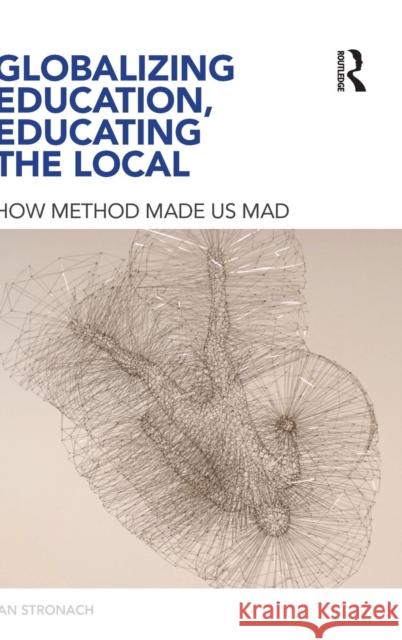Globalizing Education, Educating the Local: How Method Made us Mad » książka
Globalizing Education, Educating the Local: How Method Made us Mad
ISBN-13: 9780415431118 / Angielski / Twarda / 2009 / 230 str.
Globalizing Education, Educating the Local: How Method Made us Mad
ISBN-13: 9780415431118 / Angielski / Twarda / 2009 / 230 str.
(netto: 743,28 VAT: 5%)
Najniższa cena z 30 dni: 705,23
ok. 16-18 dni roboczych.
Darmowa dostawa!
This book offers a critical and deconstructive account of global discourses on education, arguing that these overblown 'hypernarratives' are neither economically, technically nor philosophically defensible. Nor even sane. Their 'mythic economic instrumentalism' mimic rather than meet the economic needs of global capitalism in ways that the Crash of 2008 brings into vivid disarray. They reduce national education to the same 'hollowed out' state as national capitalisms, subject to global pseudo-accountancy and fads. The book calls for a philosophical and methodological revolution, arguing for more transformative narratives that remodel qualitative inquiry, particularly in addressing a more performative rather than representative ideal. The first part of the book aims to critique, deconstruct and satirise contemporary assumptions about educational achievement and outputs, the nature of contemporary educational discourses, and the nature of the professionalism that sustain them. The second part offers innovative postmodernist ways of reconstructing a theory and methodology that aims at 'educating the local' rather than succumbing to the fantasies of the universal. This is a very timely book in that the economic crisis re-exposes the mythic nature of education-economic linkages, putting discourses prefaced on such 'connections' into parallel crisis. Our global educational discourses have also crashed, and new futures need urgently to be found. Such a 'turnaround' is both proposed and argued for. The book will appeal to a wide range of readers who are committed to educational and cultural change, and who are interested in a new politics of education. It will have an immediate relevance and appeal in the UK, USA, Australia and New Zealand in particular.
This book provides a critical account of how contemporary educational knowledge is put together and presented in the global knowledge economy, redefining the actors in the education process, including principally the child, pupil, and learner, but also the teacher, parent, inspector and policy-maker.
Education is in crisis. The last twenty years have seen the establishment of an orthodoxy based on the standardisation of all sorts of curricula based on national prescription. This orthodoxy is increasingly global. It has been accompanied, and indeed promoted, by the narrow measurement of educational performances of all sorts, their often invalid comparison, and the consequent establishment of a moral economy based on league table positions. International league tables are now the motor of national educational change, from the Pacific Rim to former communist territories, and across most western countries.
This book confronts that controversy and aims to help bring about the ‘turnaround’ that it predicts - away from measurement mania and rampant instrumentality. It will appeal to a wide range of readers who are committed to educational change, from system level to individual professional practice.











